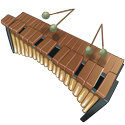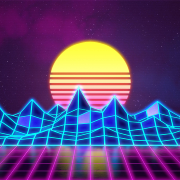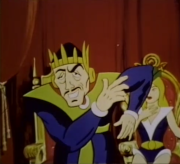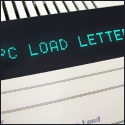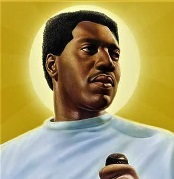|
Common enough that Obie Trice used it.
|
|
|
|

|
| # ? May 14, 2024 15:26 |
|
Kind of a weird question, but is the solution to performing computer music just a bunch of hardware? I've been thinking of how to perform my own stuff and outside of just arranging clips one would hit a button at the right time to play, a complicated series of loops and sequencers seems to be the only way. Sorry if this isn't clear.
|
|
|
|
Short answer: yes. Drum machines and MIDI keyboards are also common. Sylvan Esso does this live since they’re just a vocalist and producer. You can also learn one of the parts and hire a band for the rest like Apidae did for this studio session (Apidae is the guitarist) Jazz Marimba fucked around with this message at 23:06 on Jan 31, 2020 |
|
|
|
Theres tons of great youtube vids on how to play DAW-less shows. Go to the youtube channel Ricky Dinez, he has tons of videos on DAW-less setups for electronic music. Here's an example: https://youtu.be/qnFoKhBFDCE
|
|
|
|
I don't know nothin about this so sorry if I sound like a rube, but I've seen a few of these pop up on my youtube recs and they're neat https://www.youtube.com/watch?v=4eJ7ByX71_0 using the controller to perform by triggering stuff, building loops, adding and controlling effects and the like. They have walkthroughs for each of them https://www.youtube.com/watch?v=FeHWDMbVasI so obviously you have to set a lot of stuff up in advance, but you can make it so the controller puts it all under your fingertips and actually perform it in a more organic way. I'm sure that Push 2 is a zillion dollars but I just thought I'd post it as an example (because the explanations of what's going on are cool, and also intimidating)
|
|
|
|
Professor Latency posted:Kind of a weird question, but is the solution to performing computer music just a bunch of hardware? I've been thinking of how to perform my own stuff and outside of just arranging clips one would hit a button at the right time to play, a complicated series of loops and sequencers seems to be the only way. I don't know if this is helpful, but looking at what you write and then playing with the bits is probably the best way to start. You don't need hardware necessarily (even for 'complicated series of loops and sequences'), beyond control mechanisms that suit what you want to do. I would suggest the way to find that out is to just experiment. Find out what you want control over, things that need to evolve that could stay as midi etc, and learn what you enjoy doing. If you are playing 'songs' its probably a different set of things than if you want to create an evolving soundscape, or seamlessly mix elements of tracks youve written vs smash out beats live etc. I have tried a few things and have no actual answers, but thinking of macro and micro control seems helpful - things that you want fine control vs real 'big' changes. You can probably macro up control over whatever you want. Or create sequencers etc in VCV rack, midi channels all feeding into each other in Ableton/Bitwig etc. What is it that you want to be performative? Sorry if I've misunderstood what you are asking (I dont know what computer music means to you), but I dont think the solution is necessarily a bunch of hardware - theres thousands of ways to do whatever, trying things and learning what you like and enjoy, and the limitations of what you have got and know is probably the way to start...
|
|
|
|
Thanks for the replies. I've watched a lot of dawless setup videos and while they seem fun, it doesn't seem as impossible as I thought inside ableton. The grand idea was to become some sort of "one man band" for electronic music, but thinking of how my songs are structured I'd simply need more people to play the parts. Guess that's why bands exist. Weird lol.
|
|
|
|
Professor Latency posted:Thanks for the replies. I've watched a lot of dawless setup videos and while they seem fun, it doesn't seem as impossible as I thought inside ableton. The grand idea was to become some sort of "one man band" for electronic music, but thinking of how my songs are structured I'd simply need more people to play the parts. Guess that's why bands exist. Weird lol. Check out Tash Sultana, she's been doing the solo gig thing for a couple of years now (and grown absurdly huge in the process, she's going to start working with a band now though) with really good use of loop pedals.
|
|
|
|
Where do most people start when composing something new? I will often sit for an hour or two with a couple of instruments and try to squeeze something half decent out, but it all sounds like poo poo. Is there a "one weird hack" that composers use, or is it like that for everybody? I know a bunch of bands basically start with an existing chord progression or melody from a different song, and then just evolve it to something else entirely, but at least that way they have a foundation to work with.
|
|
|
|
DreadCthulhu posted:Where do most people start when composing something new? I will often sit for an hour or two with a couple of instruments and try to squeeze something half decent out, but it all sounds like poo poo. Is there a "one weird hack" that composers use, or is it like that for everybody? I know a bunch of bands basically start with an existing chord progression or melody from a different song, and then just evolve it to something else entirely, but at least that way they have a foundation to work with. I just improvise until I stumble upon a part that sounds pretty good and that I want to expand on, and take it from there. Sometimes this results in 1-2 hour jams I just throw away, but every fifth one or so yields a decent jumping off point.
|
|
|
|
DreadCthulhu posted:Where do most people start when composing something new? I will often sit for an hour or two with a couple of instruments and try to squeeze something half decent out, but it all sounds like poo poo. Is there a "one weird hack" that composers use, or is it like that for everybody? I know a bunch of bands basically start with an existing chord progression or melody from a different song, and then just evolve it to something else entirely, but at least that way they have a foundation to work with. I just play a chord progression with different strum patterns and fingering until notes start to jump out at me and suggest a melody. After that, it's just pulling the melody out.
|
|
|
|
DreadCthulhu posted:Is there a "one weird hack" that composers use steal something and change it just enough to call it original
|
|
|
|
DreadCthulhu posted:Where do most people start when composing something new? I will often sit for an hour or two with a couple of instruments and try to squeeze something half decent out, but it all sounds like poo poo. Is there a "one weird hack" that composers use, or is it like that for everybody? I know a bunch of bands basically start with an existing chord progression or melody from a different song, and then just evolve it to something else entirely, but at least that way they have a foundation to work with. Sometimes I gather a few songs I'm enjoying at the moment, borrow the structure from one, chord progression from another and melodic themes or drum rhythms from the other one and it evolves from there. Or something like Captain Chords to generate a progression to start with. Might sound like a cliche by now but the old maxim of "limitation breeds creativity" is definitely true so maybe pick something randomly and limit yourself to that until you develop something you like. The Muppets On PCP posted:steal something and change it just enough to call it original Basically this tbh
|
|
|
|
Simone Poodoin posted:Basically this tbh Question then is, is everybody doing this? Or are there actual people out there who sit down at the keyboard and whip out genius tunes right out of nowhere?
|
|
|
|
I think that there's definitely people who can do that, but it's an unrealistic expectation to think that you should be able to do it all the time.
|
|
|
|
No one is whipping tunes out of nowhere, they’re all based on everything they’ve heard, just like everyone else. The only difference is they can’t cite their
|
|
|
|
DreadCthulhu posted:Where do most people start when composing something new? I will often sit for an hour or two with a couple of instruments and try to squeeze something half decent out, but it all sounds like poo poo. Is there a "one weird hack" that composers use, or is it like that for everybody? I know a bunch of bands basically start with an existing chord progression or melody from a different song, and then just evolve it to something else entirely, but at least that way they have a foundation to work with. I comb second hand bookstores for old, really old, song book collections. I use the chord progressions as a framework to write melodies and harmony over- it never winds up being the same because I reharmonize the hell out of it and move stuff around. It's basically all about getting the ball rolling.
|
|
|
|
DreadCthulhu posted:Where do most people start when composing something new? I will often sit for an hour or two with a couple of instruments and try to squeeze something half decent out, but it all sounds like poo poo. Is there a "one weird hack" that composers use, or is it like that for everybody? I know a bunch of bands basically start with an existing chord progression or melody from a different song, and then just evolve it to something else entirely, but at least that way they have a foundation to work with. sing a little song! if you are competent at singing, you can more easily surface your inner musical ideas not good at singing? its practice, like anything else. too uptight to sing? try singing the most hilariously offensive lyrics you can imagine e: also effective for me: singing songs about my dog Helianthus Annuus fucked around with this message at 04:21 on Feb 8, 2020 |
|
|
|
DreadCthulhu posted:Where do most people start when composing something new? I will often sit for an hour or two with a couple of instruments and try to squeeze something half decent out, but it all sounds like poo poo. Is there a "one weird hack" that composers use, or is it like that for everybody? I know a bunch of bands basically start with an existing chord progression or melody from a different song, and then just evolve it to something else entirely, but at least that way they have a foundation to work with. I have a few ways ; 1) Start listening to a song you like that has a chord progression you dig, maybe a particular riff or a melodic line. Listen to it, like really listen to it ; Try and really think about what it is in detail that you like. Is it the way the chords play, the intervalls between the notes? Cool, now try and play something just like it! You can even straight up play the thing you like straight up, and go from there. Since you're only focusing on one particular thing, you'll make something different to accompany it. 2) Limit yourself. Decide on a BPM straight up, maybe even what key it should be in. Hell, you might even go ahead and write down the whole structure (i.e intro verse pre-chorus etc) and work around that. Sometimes having no limits is going to put some limits on your creativity, since there's just too much you can do. You can even decide that you're only allowed to use a set amount of instruments, the fewer the better! 3) Go for a walk, look at the things you see, listen to the sounds of where you are. Humans are like crazy good at finding patterns in things, and I'm certain that if you put yourself in an environment where you can observe, you'll find some yourself. Try and mimic that when you come back. Hell, you can even start to hum when you're walking, and tap your hands too! And the good thing is that you've already set the BPM when you're walking! 4) Look in the complete opposite direction of where you want to go. You're a folk singer? Good, now you're going to try and write a classical compositon! Putting yourself in unfamiliar territory is a great way to let you fall back on your instincts and forces you to experiment at the same time, because you're going to do something new. It's probably paradoxical, and that's the beauty of it ; You have your way of playing things since you've been influenced by things you like, and now you have to try and put those skills to the test with something you haven't done before, or maybe even don't like. And here is where the real beauty comes, and that is that your brain is going to start to try and make sense of things and find patterns so you can get your bearings. And who knows, maybe you'll even find something you actually like with this new thing you're trying? 5) Jam with other people. Making things together with someone else is going to open up a whole new world because you're going to be influenced second hand by their influences, and you're going to show the other person/people what you're really good at and they're going to do just the same. And a lot of the time, you're going to find that their strengths are going to mesh really well with their weakness, and the other way around. This is probably the hardest one to do since it either requires you to meet people in real life who can find the time (and place) to get together, or find communities with people who make music. 6) Challenges. This could probably go under point 2, since you're limiting yourself in a way ; Maybe it is to make an EP or a song in 24 hours, or make something until the end of the month. You can ask friends (or strangers) about things you should do, for instance maybe a friend of yours want you to make a song about their cat? Great, now you've got a challenge! 7) Dedicate yourself to spend a few minutes every day to just play. This is by far the hardest, since life can and will find ways to make you too tired or stressed to be able to sit down and just spend time with yourself. Force yourself to actually take 15 minutes (or 10 minutes, or 5, hell even 1 minute works) of your time every single day to play. Play to make something new, play something old, something borrowed, as long as you play! And play no matter your mood, because you will find that in due time, things will clear up, and most importantly, doing it consistently forces your brain to start thinking creatively. 8) Do something completely different that's creative. Sometimes you just need to take a completely different path. And lastly, the most counterintuitive one ; 9) Just forget about making music and make sure that you've eaten enough today (and make sure that you've eaten a balanced meal!), that you're not dehydrated, and that you've had enough sleep. This is also kind of hard since life sometimes doesn't line up at all and there's just not enough time. And that sucks, which makes it even more important to just forego all the other things you might want to do, to just focus on one thing ; Yourself. This is how I usually do it, personally I find that just being stubborn as a loving mule and sit down with my guitar or bass guitar and keep on playing works best for me. I usually get really pissed at myself when I do this, and then think to myself that I'm dumb as a bag of bricks and that spurns me to show myself that I'm not. All the other tips are also really good, I hope any of this helps  Edit ; One last thing. 10) Never analyze while you're creating. One of the things that can really grind things to a halt is starting to think Why about what you're making. Don't ask yourself "why" is this working, ask yourself instead, How? I also never allow myself to work on something for more than a week, and instead always opt to just get it out. I have found that it is always a lot better to make 1 good song and 4 mediocre songs instead of making that Perfect Track, because it's a fools errand. It also distracts you from that initial feeling you had when the music came to you. Forcing yourself to just put it out there also serves another purpose ; It means that whatever comes after is always going to be better, because practice makes perfect. It also means you can just revisit that song and pick out the things you liked and create something completely different from it  Which is terrific, because it works extremely well with a few of the points I discussed earlier. Which is terrific, because it works extremely well with a few of the points I discussed earlier.
Greggster fucked around with this message at 08:02 on Feb 8, 2020 |
|
|
|
That's all really great advice, thank you all for putting that together. There's a lot to digest in there, but that's ok, it's a long journey. Part 10 has been real tough to me personally. As per suggestion of my production teacher, I've been trying to get to a first EP with 3 tracks that nicely summarize what I'm about, and so I'm under a ton of pressure to basically have every track be really great, but then I'm also a beginner with decades of being a music fiend, so I feel like my taste is far ahead of my skills. I'm powering through that period of suck that Ira Glass talks about in the famous speech. I learn a lot with every additional track I.... almost... complete, but none of them have met a bar where I'm even remotely happy with them. And yes, I can entirely relate to the mistake of crossing the creative process with the editing process. And I will often come back to the same track for weeks, to the point where it becomes entirely mechanical and loses all of the original feeling. I also got lost in technicalities a lot, so instead of finding a sample on Splice I like and just sticking to it, I would tell myself "Ah that's not good enough, I need to learn how to make this myself through synthesis, otherwise it's not truly me creating music". Which in retrospect sounds insane, but that was a phase. Which goes back to this famous bit: https://www.reddit.com/r/WeAreTheMusicMakers/comments/26bf7b/using_loops_is_cheating/ My hope is that as, with practice and training, I'm getting progressively more familiar with the tools of production (the DAW, various VSTs, mixing, mastering), instruments (taking piano lessons, practicing guitar, being pretty decent at synthesis etc), composition and music theory, the amount of effort required to put together a single song is less and less. To the point where creating isn't constantly hampered by mechanical and technical issues, but it's more of a free flow. None of it is intuitive for now, but it's slowly getting there with every additional track I work on. Admittedly, a year ago I could barely tell you what the notes on the keyboard are outside of C, so I'm in a much better place now. But it's one heck of a journey.
|
|
|
|
DreadCthulhu posted:That's all really great advice, thank you all for putting that together. There's a lot to digest in there, but that's ok, it's a long journey. https://russelldavies.typepad.com/planning/2007/02/quantity_equals.html 10 songs of which 9 suck is better than 1 song of which 90% sucks. For your first coherent work, you'll have an infinite amount of time. For your second, you've got a lot less. quote:I also got lost in technicalities a lot, so instead of finding a sample on Splice I like and just sticking to it, I would tell myself "Ah that's not good enough, I need to learn how to make this myself through synthesis, otherwise it's not truly me creating music". Which in retrospect sounds insane, but that was a phase. Which goes back to this famous bit: https://www.reddit.com/r/WeAreTheMusicMakers/comments/26bf7b/using_loops_is_cheating/ You can outsource a lot of things. You can hire session players. You can pay someone to design sounds for you. You can pay someone to provide you with samples. You can have someone else write your lyrics. You can have someone else compose your melodies. Every step takes something away from the process until - when you've outsourced everything - all that's left is your role as an overarching "producer" who knows what they want but can't express it the way they want to. Even that is a valid role, but perhaps not a satisfying one. Figure out what you're comfortable of for letting go (or letting go for the moment so you can focus on other things) and let go. And it's just a year. It's good that you started a year ago; would've been better if you would've traveled back in time to start earlier, but we don't have time travel. If you value development as a musician, you'd have the same kind of doubts after 10, 20 or 30 years. You're never as good as you want to be, and you should aim on getting a bit better every day, because all that experience is interest and all that interest will pay off more and more the more you progress. By itself, the material is daunting; by controlling the learning curve you can move faster. The fact that you have a mentor makes your potential velocity a lot higher because a lot of dead ends can be prevented. DreadCthulhu posted:Where do most people start when composing something new? I will often sit for an hour or two with a couple of instruments and try to squeeze something half decent out, but it all sounds like poo poo. Is there a "one weird hack" that composers use, or is it like that for everybody? I know a bunch of bands basically start with an existing chord progression or melody from a different song, and then just evolve it to something else entirely, but at least that way they have a foundation to work with. Try taking an existing melody or chord progression and reverse it. Try taking it, chop it up in 4 or 8 parts and swap things around so you don't have 1234 but 1423. Go from major > minor or the other way 'round. Reharmonize. Add complexity and color for a simple progression, remove it for a complex progression. There is so much music that you can mine for ideas, riffs and progressions, and even with that treasure trove of music, people will still use those same 4 chords because they want to say something that hasn't been said by them yet.
|
|
|
|
something i've learned about myself that might be useful is that i just cannot start a song from scratch if i'm not in the right headspace, so accepting that and working around it has been much more productive than trying to force it. i keep the voice recorder app on my phone handy any time i'm just goofing around on the guitar, and i record any little riffs or chord progressions i come up with, good or bad. then when i go to write an actual song, i just dig through them until one strikes me as having potential and then i build on it. most of the time they end up being nothing, but having dozens of jumping off points takes a lot of the pressure off. i'm constantly building this library, and it's nice because the further i get from originally recording something, the more possibilities i hear. it's very satisfying to rediscover older ones i had written off and finally understand how to transform them into something i think is good. basically i feel much more adept at building a song around a melodic phrase than coming up with the phrase in the first place, so splitting that step off into its own thing helped tons. it's also nice because it lets me shake up how/where i'm writing those phrases—i come up with much different things when i'm at my parents' house for the holidays or playing a friend's guitar than i do in my studio space, and working those ideas in the studio later feels way more flexible and free than trying to do both steps at once in the same environment.
|
|
|
|
How do people reason about whether to go with reverb or delay when producing? Do you mix them up or do you keep them separate? I'm asking because I typically only ever use reverb unless I'm looking specifically for something like a delay throw on the last bar of a section, for effect. However I realize that you can get pretty close to something that sounds like reverb by using delay with sufficiently fast echo time and enough feedback. Meaning that the line between reverb and delay can be pretty blurry.
|
|
|
|
Real reverb is basically a pattern of echoes delayed and tonally changed in certain ways (like how a voice reflects off all the surfaces in a concert hall and they reach your ears at different times), so yeah you can get a simple approximation of that kind of thing by using a delay with a real short time I guess it depends on the sound you want? Do you want to hear the actual echoes / repeats (maybe even a very short one so it's like doubling the original sound) or do you want more of a room sound, or a sense of space? If you're layering a really thick soundscape, do you just want it to be a swell where everything just seems to stick around, or do you want to hear repeats layering like a loop building on itself? Or do you want a particular sound, like the drip of a spring reverb? Nothing wrong with using a delay to get a reverby sound if it's working for you! Best way is to experiment really. Maybe look at some different delays to see what options you get, like how the echoes can darken and feed back and provide their own texture. They work together well too - not uncommon to find pedals that are basically a reverb/delay combo. Look at some demos for those! See what people get up to with them, what each bit brings to the table baka kaba fucked around with this message at 05:04 on Feb 15, 2020 |
|
|
|
The way I sort of look at reverb vs delay is I ask myself ; Do I want a sound that's wide, or deep? It's weird to explain it, I always experience reverb as depth whereas delay will widen the sound source. (This might have to do a lot with me always having the delay being panned to the left and right, and one of the delay is say 1000ms and the other one is 750ms, and with reverb I have both one longer and one shorter, both in the middle). edit : One thing that is important to remember is that reverb will in a way mudden the sound, a delay will just repeat the same signal over and over so taking extra care to use the EQ on the reverb is necessary. Obviously you should do the same with the delay, it isn't as important though. One cool effect you can do is to send first to delay, then have the delay sent to reverb! Greggster fucked around with this message at 06:38 on Feb 15, 2020 |
|
|
|
DreadCthulhu posted:How do people reason about whether to go with reverb or delay when producing? Do you mix them up or do you keep them separate? Reverb blurs sound. Over 50%, the sound starts to get a noticeable attack time - even if the attack was zero. Delay generally doesn't - well, it's not so much blurring anymore, it's that the copies are so few and far between that you can notice them individually. It doesn't stop there though - the copies themselves can be degraded in various ways, and they can act like chorus and reverb at the same time (pitched copies that coincide with the same note for chorus, filtered copies acting as bits of reverb). quote:I'm asking because I typically only ever use reverb unless I'm looking specifically for something like a delay throw on the last bar of a section, for effect. However I realize that you can get pretty close to something that sounds like reverb by using delay with sufficiently fast echo time and enough feedback. Meaning that the line between reverb and delay can be pretty blurry. Reverbs are delays in networks with allpass filters. Without filtering, delays can introduce comb-filter like effects. This is pretty good if you want to model the inside of an oil tank, but not so if you want realistic rooms. Designing reverbs is an art - trying to get as much out of as little memory as possible. It's an audio hash function of sorts. Instead of using inserts, try using sends/aux. That way you mix a partially reverberated signal with a partially delay-mixed signal, without sending the delay through the reverb (which basically blurs every copy). Laserjet 4P fucked around with this message at 14:52 on Feb 15, 2020 |
|
|
|

|
|
|
|
That's cool, would make a good poster or shirt
|
|
|
|
Thanks for the tips!!
|
|
|
|
I'm planning to go on a couple planes the next few months. Problem is I don't have an address for the next place. I was hoping to bring my instrument with me on the plane so I can practice for the next few months and because shipping is going to be super expensive and I'm worried they'll break it. However the instrument is 160 cm long. I tried looking online for stuff, but the only thing people seem to bring on planes are guitars and violins for some reason. I saw that I may need to buy it its own seat. :/ I was planning to call the airline later, but if anyone has experience bringing large instruments on a plane (especially international), what was your experience?
|
|
|
|
Shadow0 posted:I'm planning to go on a couple planes the next few months. Problem is I don't have an address for the next place. I was hoping to bring my instrument with me on the plane so I can practice for the next few months and because shipping is going to be super expensive and I'm worried they'll break it. However the instrument is 160 cm long. What is the instrument?
|
|
|
|
Thumposaurus posted:What is the instrument? Gayageum
|
|
|
|
Does it have a case? If not you might have to suck it up and get a "flight" case for it and check it as baggage. Bad news there is it's too long for a full sized keyboard case so you might be looking at getting a custom case made. Probably cost you just as much as buying another seat but it will be protected forever. Call the airline and see if they can do anything.
|
|
|
|
Thumposaurus posted:Does it have a case? Yeah, I bought a hard case. It cost $300. But even with the case, will they let me check it in? I suppose I should just call them. Haha, social anxiety. Never mind, I found oversized and excess baggage on the website. Looks like it'll be considerably cheaper to mail it back home rather than try to lug it to multiple countries, so I think I'll just go a few months without practice. I don't practice enough anyway... Thanks for the help though! Shadow0 fucked around with this message at 01:30 on Feb 27, 2020 |
|
|
|
when i traveled for work a bunch, i grabbed a pelican case for my electric guitar. you can shape the foam so it's nice and safe, and as a bonus everyone always thinks it's a rifle case so nobody fucks with it. you usually have to go up the luggage counter and provide ID for that same reason, but unless you're in a rush to get out of the airport then it's probably not an issue. this was all US-based travel, though, so it may not work elsewhere
|
|
|
|
Update: the post office won't ship it, so I guess it's coming with me after all! 💸CaptainViolence posted:when i traveled for work a bunch, i grabbed a pelican case for my electric guitar. you can shape the foam so it's nice and safe, and as a bonus everyone always thinks it's a rifle case so nobody fucks with it. you usually have to go up the luggage counter and provide ID for that same reason, but unless you're in a rush to get out of the airport then it's probably not an issue. this was all US-based travel, though, so it may not work elsewhere I already bought a case. I figured whatever scenario I'd need a hard case so I went and got it. It's as tall as me. I think non-Americans are going to be very suspicious of a case that looks like a rifle case. And an American carrying a rifle-case-looking something around in Russia would not bode well for me I think.
|
|
|
|
I live in a nowhere country, but some airlines here have extra baggage allowances and concessions etc available for musicians who are part of the local performance rights association. If you are member of one of the half-dozen US ones maybe ask them?
|
|
|
|
I have been learning a little lately about how to use distortion and saturation plugins effectively to introduce analog-style harmonics to tracks, to give it the sense it has been recorded in an analog studio. If my plan is to have a professional mastering engineer finish my track, though, am I best off not really getting into all that so as not to interfere with their work, the same way you usually don't want to mess arround too much with mastering compressors before handing it over?
|
|
|
|
If its part of the vibe of the track and you aren't overcooking it it'll probably be fine. Are you mixing yourself then sending it to be mastered just to do that last bit of 'polish' and loudness? I personally would put any saturators/warmth on group busses or individual tracks rather than have it on the master itself. I definitely love what a tiny bit can do to a heavy guitar buss. You get more control over it and some instruments need a bit more than others. I may saturate the hell out of a snare, for example, but want the overheads cleaner. I've taken to having TDR Kotelnikov (free) set really gently on my master from the get go, but my gain on the Cubase channel strip is set to -6db. I've found this means it isn't squishing for the majority of the time, in fact most of the time it barely does anything other than catch the odd wayward snare, but if I reset the gain back to 0 I can get an idea of what it could sound like later on. It's handy to have if playing your stuff to others whilst it's WIP too, instantly makes it sound more "proper".
|
|
|
|

|
| # ? May 14, 2024 15:26 |
|
NonzeroCircle posted:If its part of the vibe of the track and you aren't overcooking it it'll probably be fine. Are you mixing yourself then sending it to be mastered just to do that last bit of 'polish' and loudness? Yeah, I usually send stuff out for the little bit of polish and the peace of mind that a professional is having the final look at it. I like working with people that run my tracks through some analog gear to put a little (or sometimes a lot of) authentic crunch to it. I've liked some of the results I've been getting cranking some of my saturation VSTs on individual tracks to get a driven sound throughout, and am probably laying it on a little thick ATM because I'm having fun. But I was concerned that maybe that could take away from a mastering engineer's ability to handle those elements a little more deftly and authentically. I'm doing dance and instrumental electronica FWIW Drink-Mix Man fucked around with this message at 23:26 on Mar 7, 2020 |
|
|






